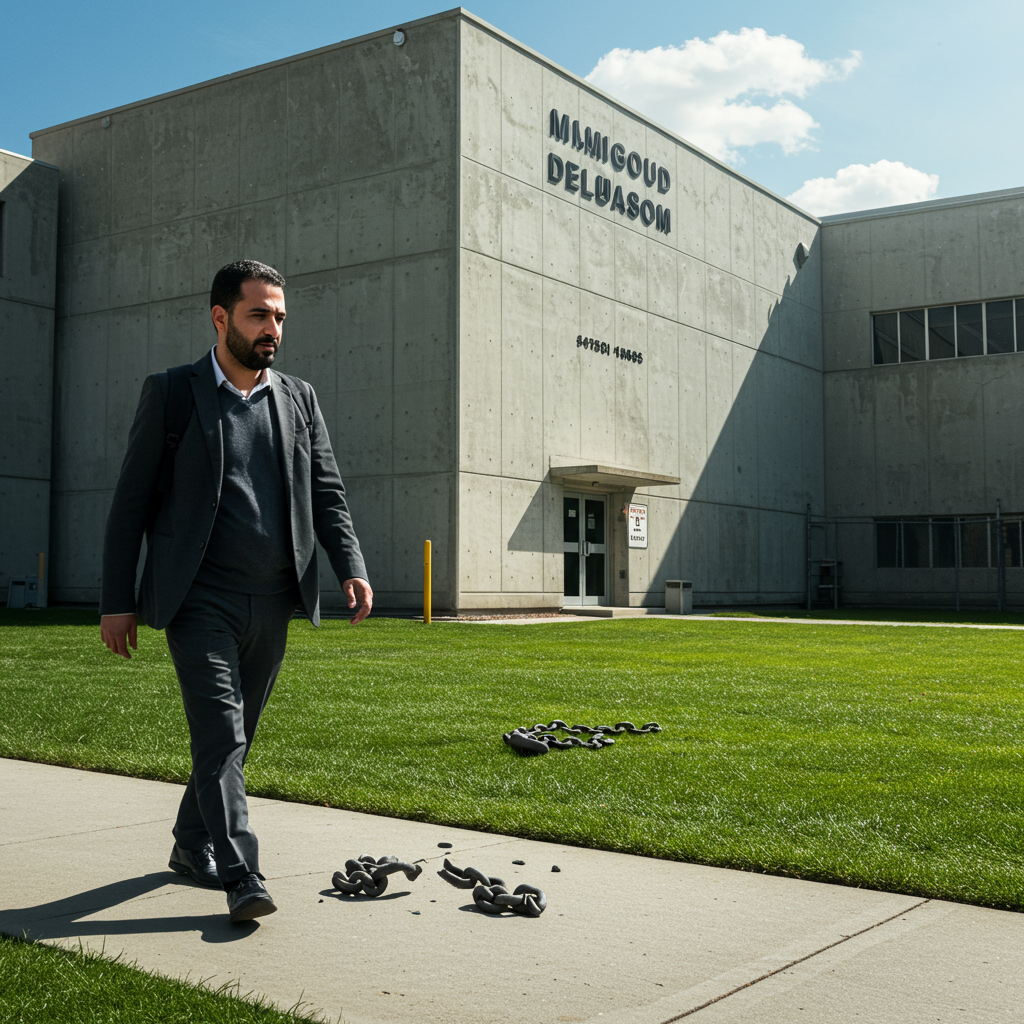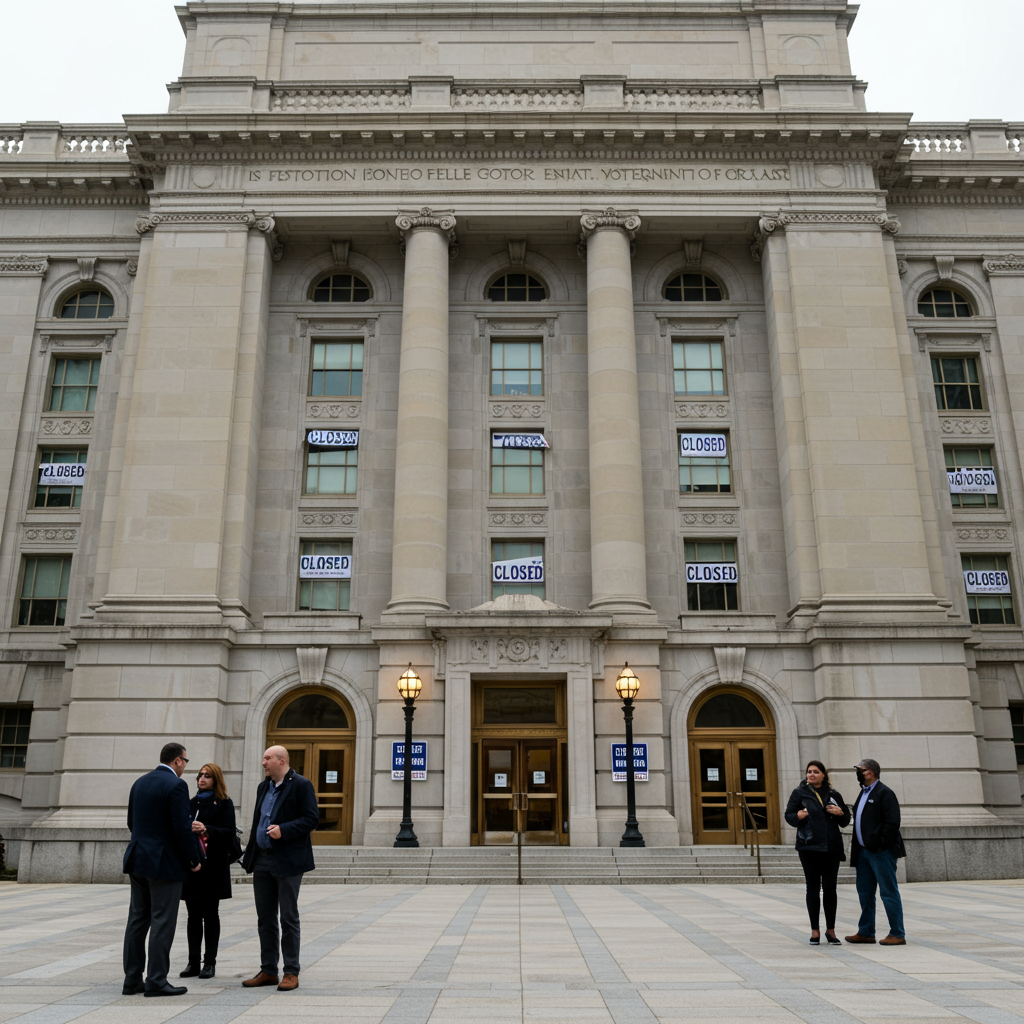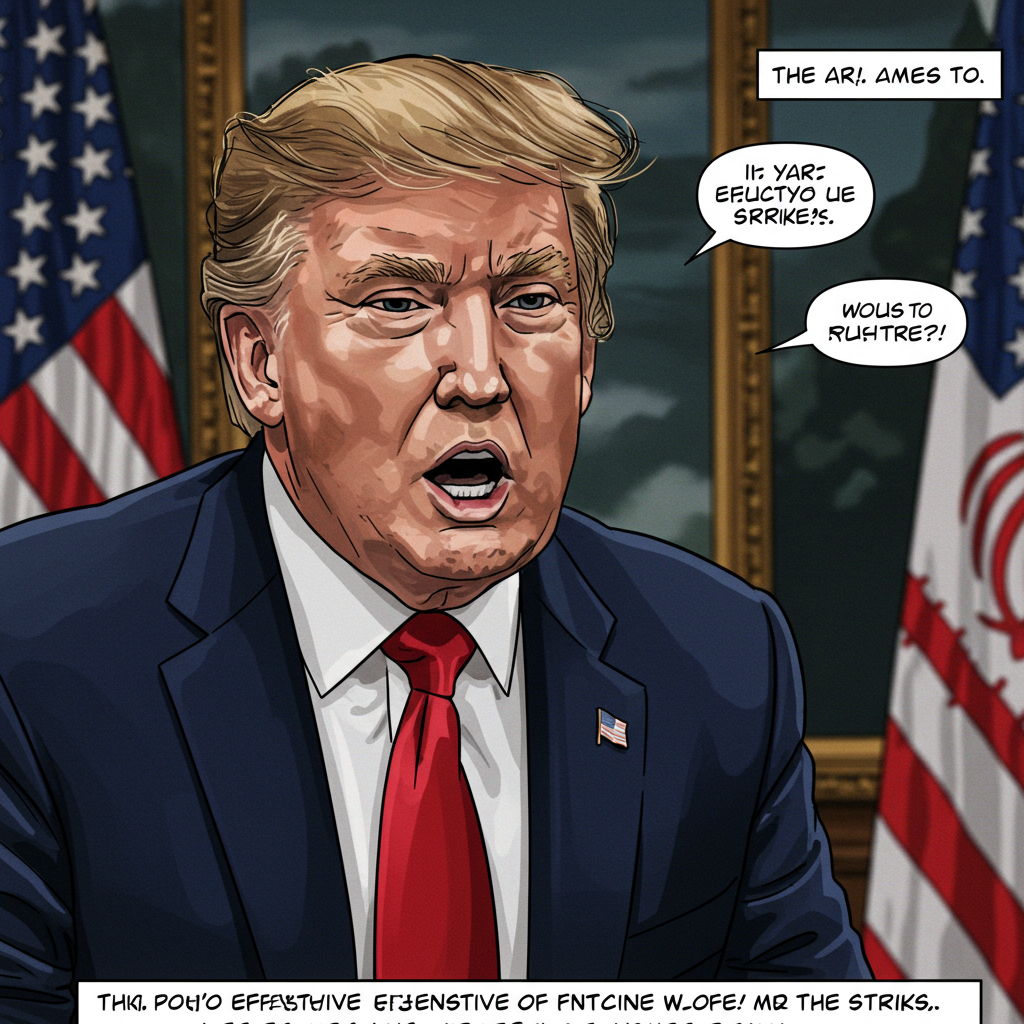Activist Mahmoud Khalil Released from Immigration Custody After Federal Judge Intervention
Mahmoud Khalil, a prominent Columbia University graduate and pro-Palestinian activist, has been released from U.S. immigration detention in Louisiana after being held for over three months. His release on Friday followed a ruling by a federal judge who stated that Khalil was not a danger to the community or a flight risk, effectively overriding a simultaneous deportation order issued by an immigration judge.
Khalil, 30, emerged from the remote Immigration and Customs Enforcement (ICE) facility in Jena, Louisiana, accompanied by his attorneys. He was originally detained by plainclothes immigration agents in New York City in early March, becoming the most high-profile student targeted by the administration over campus activism and the last of several detained students still in federal custody.
Federal Judge Challenges Government’s Case
U.S. District Judge Michael Farbiarz of the U.S. District Court for New Jersey ordered Khalil’s release on bail, describing the government’s attempt to continue his detention as “highly, highly, highly unusual.” The judge noted that the government had “clearly not met” the standards required for detention and expressed the view that there was “at least something to the underlying claim that there is an effort to use the immigration charge here to punish Mr. Khalil,” which he found would be unconstitutional.
Judge Farbiarz had previously issued a preliminary injunction against detaining Khalil solely based on a rarely used immigration provision, which he suggested was likely unconstitutional. This statute allows the Secretary of State to order deportation based on an individual posing an adverse effect on U.S. foreign policy.
Despite this, an immigration judge in Louisiana had, on the same day as Judge Farbiarz’s ruling, denied Khalil’s request for asylum, ordered his removal from the country, and ordered him to remain detained. However, the federal judge’s order for release superseded this immigration court decision.
Allegations and Defense
The Trump administration, which had aggressively pursued Khalil’s detention and deportation, had accused him of threatening U.S. foreign policy goals related to combating antisemitism, alleging antisemitism and pro-Hamas advocacy. However, reports indicate the government provided no evidence to support these claims.
Weeks after his initial detention, immigration officials added a charge of fraud related to Khalil’s green card application – an argument his attorneys refute. Judge Farbiarz had previously sided with the government on this latter detention ground in a separate ruling, but ultimately ordered his release on bail.
Khalil’s legal team has consistently argued that his detention was retaliatory punishment for his speech and activism, which they assert is protected under the First Amendment. As one attorney stated, the government’s actions confirmed their belief that the goal was “retaliatory detention” to keep him locked away until deported as punishment for his viewpoint. Jewish students and faculty had also submitted court documents on Khalil’s behalf.
Conditions of Release and Personal Impact
Upon his release, Khalil spoke briefly to the media, stating that while justice had prevailed, it was “very long overdue and this shouldn’t have taken three months.” He also voiced concern for the “over 1,000 people” he left behind in detention, stating they “shouldn’t have been there in the first place.”
Responding to the administration’s allegations, he emphasized, “Trump and his administration, they chose the wrong person for this… There is no right person who should be detained for actually protesting a genocide.”
Khalil’s release came with conditions. While Judge Farbiarz did not require electronic monitoring or an immediate bond posting, U.S. Magistrate Judge Michael Hammer set specific terms. Khalil was required to surrender his passport(s) at the Jena facility, and his domestic travel is restricted to specific locations necessary for his residence, attorney meetings, court appearances, and legislative meetings, including New York and Louisiana. Crucially, Magistrate Judge Hammer ordered that Khalil’s green card be returned to him, despite the deportation order, which his attorneys argued was necessary for his appeal.
The personal toll of his detention was significant. Mahmoud Khalil is married to a U.S. citizen, Noor Abdallah, and their first child, Deen, was born in April while Khalil was in custody. He expressed looking forward to returning home to spend time with his infant son, saying, “I can actually hug him.”
Reactions and Broader Implications
Khalil’s wife expressed immense relief at the ruling but noted it doesn’t address the broader injustices. Amnesty International USA celebrated the decision as “overdue.”
Congresswoman Pramila Jayapal issued a statement hailing the release as a “critical step on the road to justice” but calling Khalil’s detention an “unjust” stain on the system and an “attack on the constitutional free speech protections.” She argued that this case, alongside others, indicates the administration is targeting people of all legal statuses simply for disagreeing, warning that if it can happen to Mr. Khalil, “they can do the same thing to you.”
The Department of Homeland Security sharply criticized Judge Farbiarz’s decision, calling him a “rogue district judge” who had “undermined national security” and harmed the constitutional system by “denying the outcome of the 2024 election.” DHS maintains that only an immigration judge has the authority over detention and release.
Khalil’s release marks a significant victory for him and his legal team in challenging his detention. However, his immigration case, including the deportation order based on the green card allegations, will proceed separately. Three other students detained on similar grounds were previously released while their cases are pending, highlighting the ongoing legal battles faced by activists targeted under the administration’s policies.




